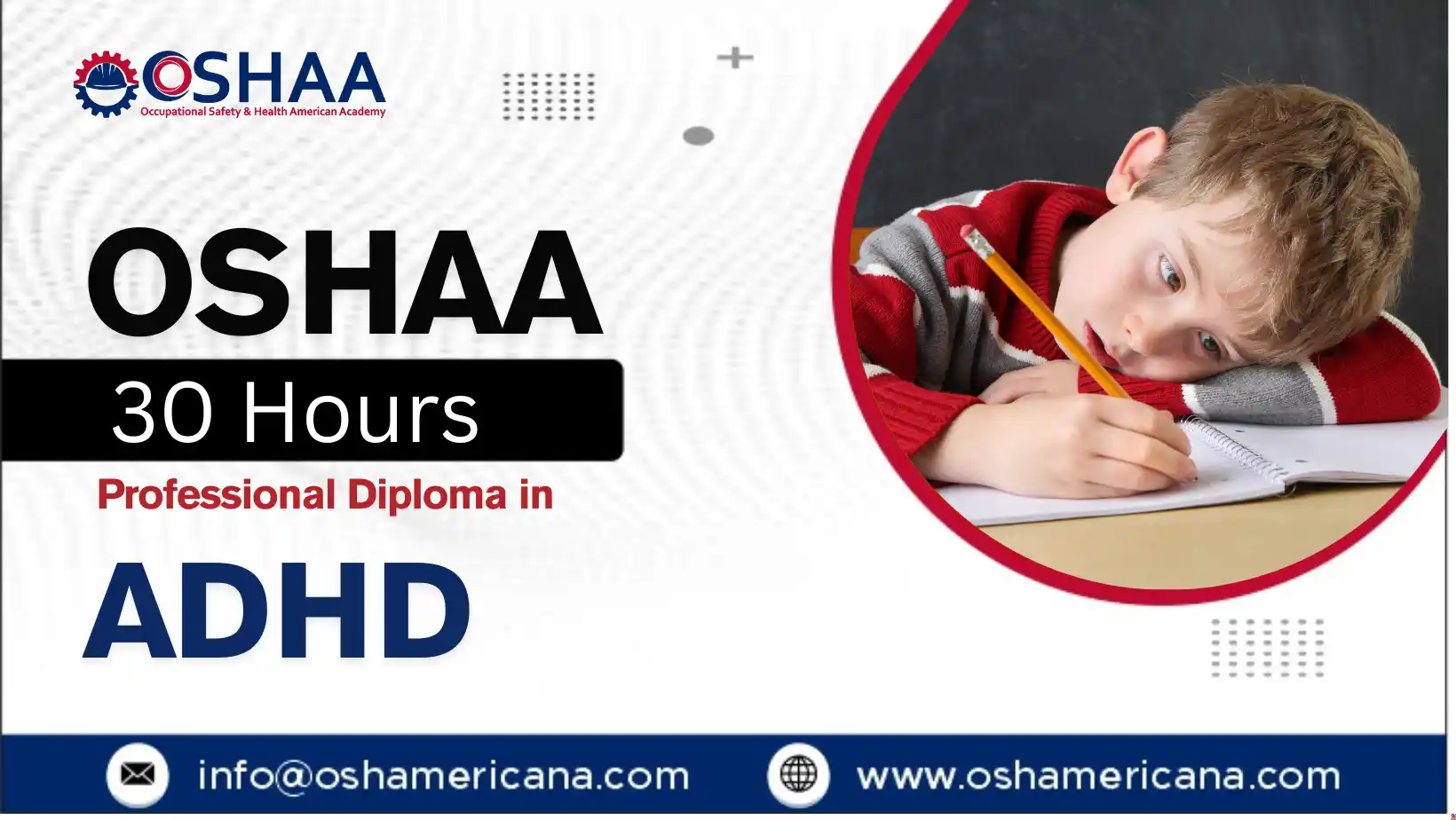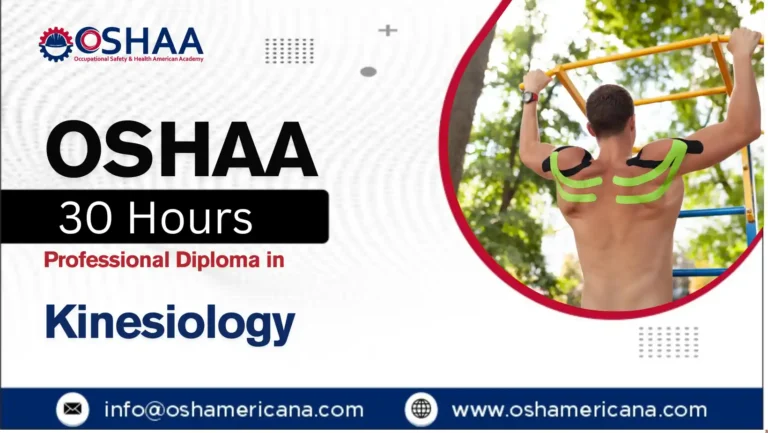Attention Deficit Hyperactivity Disorder (ADHD) is a complex neurodevelopmental condition that affects millions worldwide, presenting challenges in attention, impulsivity, and hyperactivity. As awareness grows, so does the need for professionals equipped with specialised knowledge to support individuals with ADHD across educational, healthcare, and workplace settings. The OSHAA 30-Hours Professional Diploma in ADHD is a comprehensive training programme designed to provide in-depth understanding and practical skills for managing and supporting those affected by this condition.
The OSHAA 30-Hours Professional Diploma is a structured course that delves into the nature of ADHD, its diagnosis, and management approaches. It combines theoretical knowledge with practical applications to help participants understand behavioural patterns, coexisting conditions, and effective intervention techniques.
The OSHAA 30-Hours Professional Diploma in ADHD provides essential knowledge and skills for anyone supporting individuals with ADHD. It offers a valuable qualification that meets UK professional standards and promotes inclusive, evidence-based practice.
Whether working in education, healthcare, social care, or the workplace, this diploma empowers professionals to make a meaningful difference in the lives of people with ADHD and their families.
OSHAA 30-Hours Professional Diploma in ADHD
Study Units
Learning Outcomes
Understanding ADHD: Definition and Neurodevelopmental Basis (3 hours)
- Define ADHD and understand its neurodevelopmental origins
- Recognise how ADHD affects brain function and behaviour
- Explain the types and subtypes of ADHD
- Appreciate the impact of ADHD across different life stages
Symptoms, Diagnosis, and Assessment Processes (4 hours)
- Identify core symptoms and behavioural characteristics of ADHD
- Understand diagnostic criteria used by professionals (e.g., DSM-5, ICD-11)
- Describe the assessment tools and methods for ADHD diagnosis
- Recognise the importance of a multidisciplinary approach to assessment
Co-occurring Conditions and Differential Diagnosis (3 hours)
- Identify common co-occurring conditions such as anxiety, learning disabilities, and autism
- Differentiate ADHD symptoms from other mental health or developmental disorders
- Understand the challenges posed by overlapping symptoms
- Apply strategies for accurate diagnosis and tailored support plans
Behavioural Management Strategies and Therapeutic Approaches (4 hours)
- Explore evidence-based behavioural interventions and therapies for ADHD
- Develop practical skills in behaviour modification techniques
- Understand the role of medication and non-pharmacological treatments
- Implement personalised management plans for individuals with ADHD
Supporting Learning and Educational Interventions (5 hours)
- Identify effective teaching strategies and classroom accommodations
- Develop Individual Education Plans (IEPs) tailored to ADHD needs
- Support development of organisational, social, and study skills
- Collaborate with educators, parents, and specialists to enhance learning outcomes
Communication Skills and De-escalation Techniques (5 hours)
- Enhance communication approaches for individuals with ADHD
- Learn de-escalation methods to manage challenging behaviours calmly
- Build positive relationships through empathy and active listening
- Apply conflict resolution strategies in educational and workplace settings
Legal Frameworks, Rights, and Workplace Accommodations (3 hours)
- Understand relevant UK legislation relating to disability and equality (e.g., Equality Act 2010)
- Recognise the rights of individuals with ADHD in education and employment
- Identify reasonable adjustments and accommodations in the workplace
- Advocate effectively for inclusive policies and practices
Family Support and Community Resources (3 hours)
- Recognise the role of families in managing ADHD
- Identify community support services and resources available
- Develop skills to guide families towards appropriate help and networks
- Promote holistic support that includes social, emotional, and practical needs
- Provides a comprehensive understanding of ADHD, enhancing professional knowledge and competence
- Equips participants with practical strategies to support individuals with ADHD in educational, healthcare, and workplace settings
- Improves skills in assessment, diagnosis, and management of ADHD and co-occurring conditions
- Promotes effective communication and behaviour management techniques tailored to ADHD
- Increases awareness of legal rights and responsibilities, ensuring compliance with UK equality and disability laws
- Supports the development of inclusive learning and working environments through personalised interventions
- Strengthens ability to collaborate with families, carers, and multidisciplinary teams for holistic support
- Enhances career prospects in education, healthcare, social work, and allied professions
- Encourages reflective practice and continual professional development in neurodevelopmental disorders
- Contributes to better outcomes for individuals with ADHD, fostering wellbeing, inclusion, and success
This course is ideal for a broad range of professionals and carers involved in supporting individuals with ADHD, including:
- Teachers, teaching assistants, and educational support staff
- Healthcare professionals such as nurses, therapists, and counsellors
- Social workers and community care providers
- Human resource managers and workplace supervisors
- Occupational therapists and psychologists
- Parents, carers, and family members seeking to understand ADHD better
- Special educational needs coordinators (SENCOs) and education psychologists
- Anyone looking to specialise or enhance their skills in neurodevelopmental conditions and inclusive practice
No prior formal qualifications in ADHD are required, making it accessible to those new to the field as well as experienced practitioners aiming to deepen their expertise.







